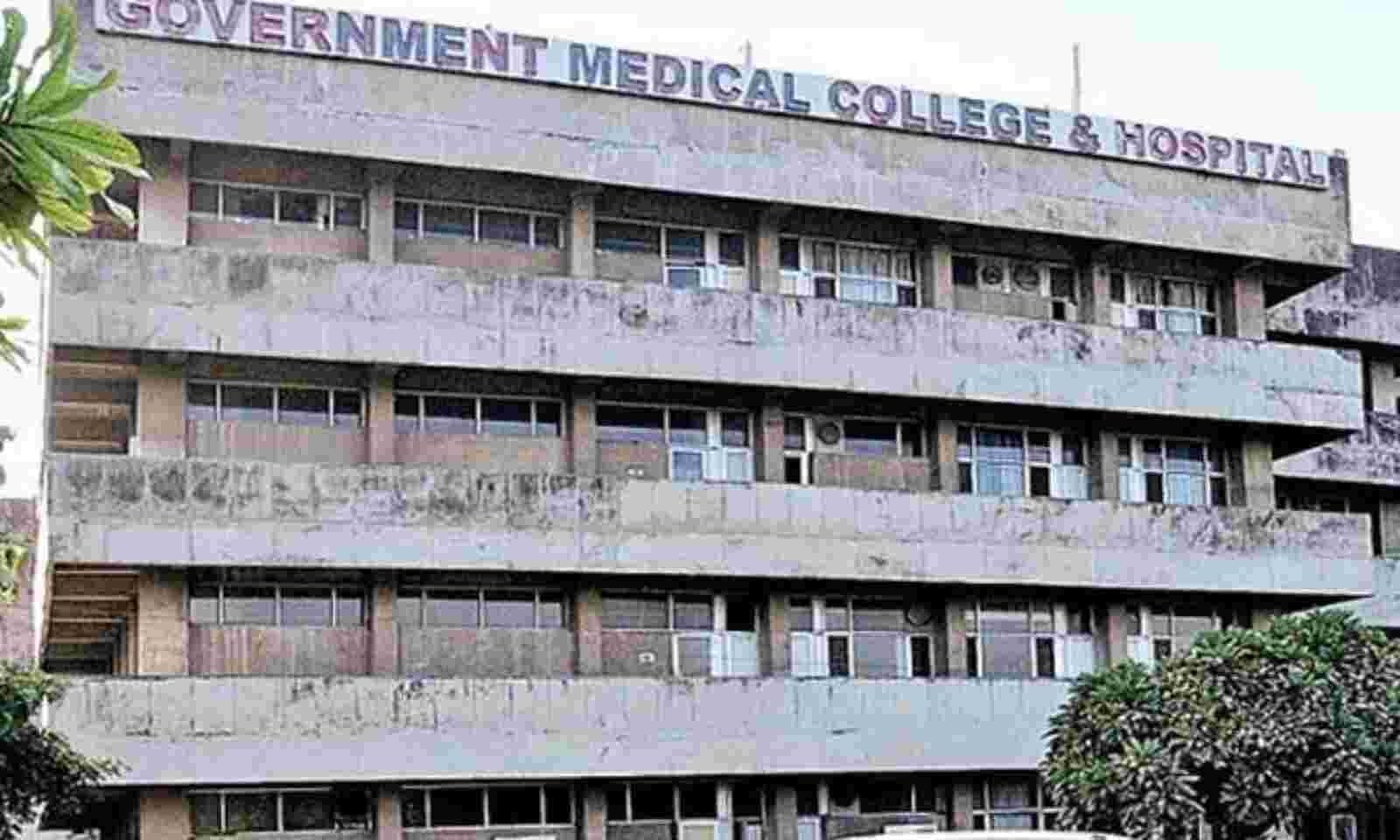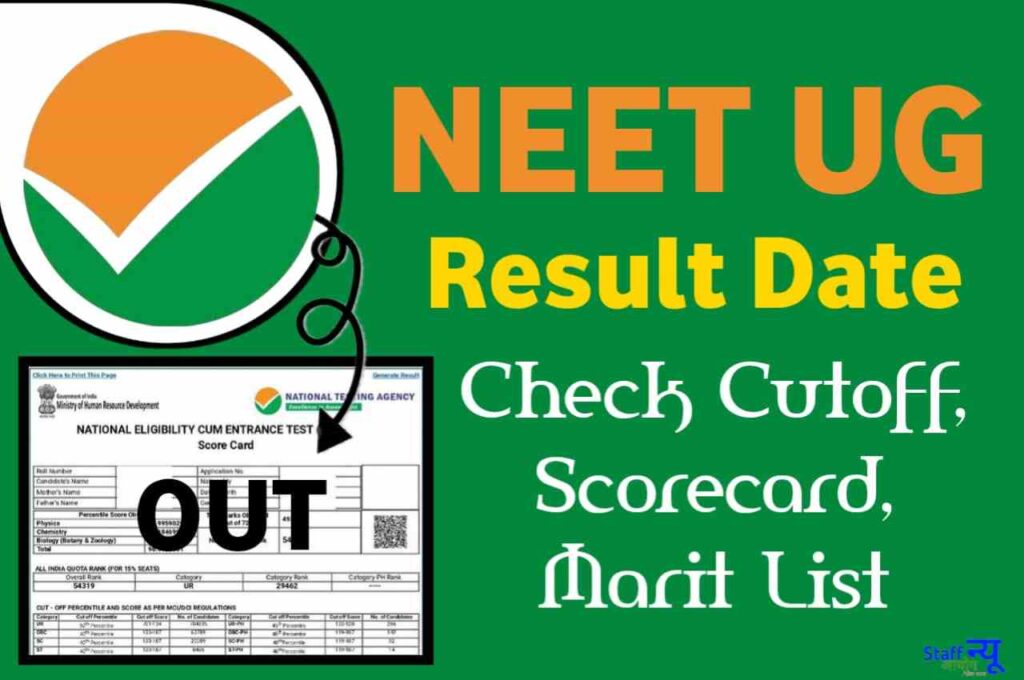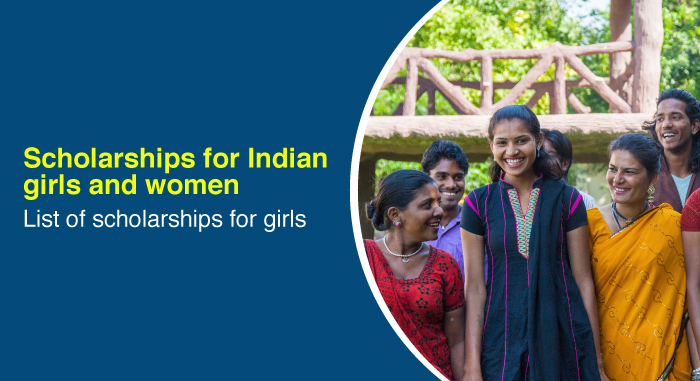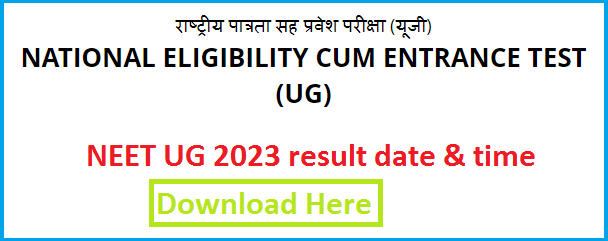The NEET (National Eligibility cum Entrance Test) exam is a key entry point if you want to work in medicine in India. The MBBS, BDS, BAMS, BSMS, BUMS, and BHMS among other medical programmes are accessible through this fiercely competitive exam. NEET is a test that assesses a candidate’s eligibility based on a set of requirements and is administered by the National Testing Agency (NTA), an independent organisation within the Ministry of Education. We will examine the NEET test, the medical courses it covers, the eligibility requirements, and the complete forms of MBBS and BDS, BAMS, BSMS, BUMS, and BHMS in this extensive tutorial.
NEET Exam Overview
The NEET test has a multiple-choice question (MCQ) structure that is done on paper and pen. It covers four academic disciplines, including physics, chemistry, botany, and zoology. A total of 180 questions, 45 from each academic area, are given to candidates. The exam takes three hours to complete.
In the NEET exam, each accurate response is worth four marks, whereas each incorrect response is worth one fewer mark. No points are awarded for questions that go unanswered.
Eligibility for NEET Exam
Candidate eligibility requirements for the NEET exam include the following:
- Academic Requirements: Candidates must have passed the equivalent of the 10+2 test or have equivalent academic preparation. English, Physics, Chemistry, Biology, and Biotechnology are requirements for enrollment.
- Age Requirement: Applicants must be at least 17 years old by December 31 of the year they are admitted, whichever comes first.
MBBS: Bachelor of Surgery, Bachelor of Medicine
The undergraduate programme known as MBBS, which stands for Bachelor of Surgery and Bachelor of Medicine, trains students to become physicians in India and internationally. The MBBS programme lasts 5.5 years, including the required mandatory rotation year.
Eligibility for MBBS
Aspiring students must fulfill the following conditions in order to study medicine in India:
- Academic Requirement: Successful completion of the 10+2 programme with Physics, Chemistry, Biology/Biotechnology, and English as required subjects.
- NEET test: Passing the NEET test is required for enrollment in the MBBS programme.
MBBS Curriculum
The MBBS programme includes a thorough curriculum aimed to give students a solid grounding in medical sciences. There are two key parts to the programme:
- The academic study phase lasts for four and a half years and consists of theoretical classes, hands-on training, and clinical rotations. In-depth understanding of topics like Anatomy, Physiology, Biochemistry, Pharmacology, Pathology, Microbiology, and others is gained by students.
- One-Year Compulsory Rotating Internship: After the academic study term is over, students must do a one-year compulsorily rotating internship. They receive real-world experience by working in various sections of hospitals, clinics, or healthcare organisations during this internship.
Career Opportunities for MBBS Graduates
Graduates with an MBBS degree have a wide range of job options available to them. Several possibilities include:
- Postgraduate Medical study: To further advance their medical knowledge and abilities, graduates can undertake postgraduate study (MD/MS) in a variety of specialisations.
- Research in the Medical Sciences: Those who have a passion for learning can work in the medical sciences to advance their subject.
- Clinical Practise: Graduates can provide medical care to patients at hospitals, clinics, or government health agencies.
- Private Practise: Some MBBS graduates open their own private medical practises, providing specialised medical care.
BDS: Bachelor of Dental Surgery
Bachelor of Dental Surgery, or BDS, is the name of the undergraduate programme that prepares students to become dentists. The research, diagnosis, prevention, and treatment of diseases, disorders, and conditions of the oral cavity are the main topics of the programme. The BDS programme lasts five years, including a one-year, required rotating internship.
Eligibility for BDS
Students must satisfy the following qualifying requirements in order to study BDS in India:
- Academic Requirement: Successful completion of the 10+2 programme with Physics, Chemistry, Biology/Biotechnology, and English as required subjects.
- NEET Exam: Passing the NEET exam is required for enrollment in the AYUSH, MBBS, and BDS programmes.
BDS Curriculum
To provide students with the requisite dental skills, the BDS programme includes both academic and practical instruction. What makes up the programme structure is:
- Students engage in theoretical coursework, laboratory work, and clinical training to build a solid foundation in dental sciences during the academic study term (four years).
- Following their academic studies, students must do a one-year mandatory rotating internship to get practical experience in dental offices and hospitals.
Career Opportunities for BDS Graduates
Graduates of the BDS programme can pursue a number of employment options, such as:
- Dentistry Practise: Graduates who are interested in working as dentists in public or private dental clinics can do so.
- Dental Specialisations: Individuals who are interested in a particular area of dentistry can continue further education and become specialists in subjects including orthodontics, endodontics, oral and maxillofacial surgery, periodontics, prosthodontics, and more.
- Research and academia: BDS graduates with a background in dentistry can work in academic settings doing dental research or teaching.
- Dental Health Organisations: By working with dental health organisations or governmental entities, graduates can support dental health efforts.
Unveiling the Full Forms and Career Paths in AYUSH Courses: BAMS, BSMS, BUMS, and BHMS
AYUSH courses give students the chance to learn about traditional healing methods and have a real impact on people’s lives in the field of alternative medicine. The BAMS, BSMS, BUMS, and BHMS programmes are two well-known courses in this area. In this thorough essay, we’ll examine these courses in all of their forms, in-depth, and go over their prerequisites, lengths, and potential career prospects. Come along with us on this informative tour of the Ayurvedic and Siddha medical worlds.
BAMS: Bachelor of Ayurveda, Medicine, and Surgery
Bachelor of Ayurveda, Medicine, and Surgery is abbreviated as BAMS. This undergraduate programme is intended for those who want to learn about Ayurveda and work in the field of traditional medicine. Ayurveda, which has its roots in the Vedic tradition, promotes holistic healing using natural cures and is regarded as supplementary knowledge (or “upaveda”).
Course Duration and Eligibility
- Students must complete their 10+2 education with Physics, Chemistry, Biology, and English as required topics in order to pursue a BAMS degree.
- They must also pass the NEET exam, which is used to determine admission to AYUSH, medical, and dentistry programmes in India.
- The BAMS programme lasts 5.1/2 years, including a one-year, required rotating internship.
Career Paths and Opportunities
Graduates with a BAMS degree have a variety of job options available to them. In both public and private Ayurvedic hospitals, clinics, and wellness facilities, they can serve as medical practitioners. Many BAMS graduates also start their own Ayurvedic practises where they provide specialised care and treatments. In order to further their knowledge and expertise, people can choose to pursue higher education and specialisation in various Ayurvedic subjects.
BSMS: Bachelor of Siddha Medicine and Surgery
Another well-known AYUSH programme is called Bachelor of Siddha Medicine and Surgery, or BSMS. Siddha medicine, which has its roots in Tamil Nadu, India, is a type of conventional medicine that places a strong emphasis on the harmony of the body, mind, and spirit. To promote general health and avoid disease, it uses natural therapies, herbs, nutrition, and lifestyle practises.
Course Duration and Eligibility
- Aspiring students must complete their 10+2 education with Physics, Chemistry, Biology, and English as required topics in order to pursue a BSMS degree.
- NEET exam is a requirement for enrollment in AYUSH institutions as well as Indian medical and dentistry programmes.
- The BSMS undergraduate programme lasts five years.
Career Paths and Opportunities
Graduates with BSMS degrees have a wide range of professional options. They are able to practise as
- Siddha doctors in both public and private Siddha clinics, hospitals, and wellness facilities, where they apply their understanding of Siddha medicine to offer all-encompassing healthcare.
- As an alternative, people might start their own Siddha practises and cater to the unique requirements of their clients.
- Additional specialisation and advancement in the area are made possible by higher education and research in Siddha medicine.
- Other possible career paths include those in academia and education, healthcare administration, public service, and entrepreneurship.
BUMS: Bachelor in Unani Medicine and Surgery
Understanding BUMS
The undergraduate programme known as BUMS, or Bachelor in Unani Medicine and Surgery, is dedicated to the study of Unani medicine. The ancient practise of unani medicine has its roots in Greece and has developed over many years. It is based on the idea of the equilibrium of the four humours—blood, phlegm, yellow bile, and black bile—and the four basic elements of earth, air, water, and fire. To encourage healing and general well-being, this holistic approach places an emphasis on natural cures, herbal medicines, nutrition, and lifestyle choices.
Eligibility and Course Duration
Students who wish to study BUMS in India must meet specific requirements.
- 10+2 schooling should have been Physics, Chemistry, Biology, and English.
- National Eligibility Completion Entrance Test (NEET) is crucial.
- BUMS programme lasts for five years. Students gain a thorough understanding of Unani medicine during this time, including its guiding principles, methods of diagnosis, and course of treatment.
- The curriculum combines theoretical knowledge with hands-on training to give graduates the skills they need to start successful careers in unani medicine.
Career Opportunities
Graduates of the BUMS programme have access to a wide range of job prospects in the field of unani medicine. These are some possible directions they could go in:
- Practitioners of unani
Graduates of BUMS can become established as Unani practitioners, giving their skills in identifying ailments, writing prescriptions for herbal remedies, and putting holistic treatment modalities into practise. They may work in hospitals or private clinics, or even start their own practise.
- Development and Research
A career in research and development in unani medicine might be fruitful for those who have a passion for learning. Graduates can expand this conventional medical system by undertaking research, coming up with fresh treatments, and generating new medications.
- Teaching and Academic Positions
Graduates of the BUMS programme have the option to pursue careers in academia as instructors at reputed institutions of unani medicine. They significantly influence the next group of Unani practitioners by imparting their expertise and experience.
- Employment in the Public Sector and Healthcare Administration
For BUMS graduates, employment in government and hospital administration is abundant. To ensure the successful application of Unani medicinal practises, they can work at research institutions, contribute to public health initiatives, or assume administrative positions in healthcare organisations.
- Business ventures and cooperation
Graduates of BUMS with an entrepreneurial spirit may consider launching their own businesses, such as wellness centres, clinics that specialise in Unani medicine, or factories that produce herbal medicines. Interdisciplinary approaches and more varied patient care alternatives can both be made possible by working with professionals from various healthcare systems.
Continuous Learning and Growth
Continuous learning and remaining current with new developments are crucial for success in the field of unani medicine. Graduates of BUMS should actively pursue professional development opportunities, go to conferences and seminars, and stay current on new developments in the field of study. This commitment to lifelong learning promotes the best patient care and supports career advancement.
BHMS: Bachelor of Homeopathic Medicine and Surgery
Bachelor of Homoeopathic Medicine and Surgery is referred to as BHMS. It is a first-year course created for students who are passionate about homeopathy and want to become homeopathic physicians. Homoeopathy is a type of supplementary medicine that works to activate the body’s natural healing processes.
The name “homeopathy” is derived from the Greek terms “homoio,” which means “similar,” and “pathos,” which means “suffering” or “like cures like.” Homeopathy’s core tenets are built on the ideas of individualization and holism, where each patient receives a customized course of therapy based on their particular features.
Eligibility Criteria for BHMS
Students must meet specific qualifying requirements in order to pursue BHMS.
- Completement of the 10+2 education with Physics, Chemistry, Biology, and English as required topics is the main requirement. These topics offer a solid grounding in the scientific ideas that underpin homeopathy.
- Students must pass the National Eligibility Completion Entrance Test (NEET) in addition to having the required academic credentials. For admission to BHMS programmes at various colleges and institutions across the nation, NEET acts as the standard entrance exam.
Duration of BHMS Course
The BHMS programme normally lasts five and a half years, including a one-year required internship. Students go through a demanding academic programme for the first four and a half years that covers many facets of homeopathy, including theoretical understanding and practical applications.
Through internships in reputable homeopathic hospitals and clinics, the last year is devoted to gaining practical experience. Students may hone their diagnostic abilities, comprehend patient management, and apply their theoretical knowledge in practical settings thanks to this hands-on instruction.
Career Opportunities for BHMS Graduates
Graduates from the BHMS programme have a variety of job options in the homeopathic industry after successfully completing the programme. In private clinics, homeopathic hospitals, and wellness facilities they can practise as homeopathic physicians. As an alternative, people may start their own homeopathic business and work for the community on their own.
Graduates of the BHMS programme can also pursue advanced study and specialisation in a variety of homeopathic fields. They can dive more deeply into certain fields of interest, such as paediatrics, dermatology, psychiatry, or gynaecology, thanks to this additional training. Their competence is increased by specialisation, which also provides access to chances for advanced clinical practise and research.
Other Career Avenues
Graduates of the BHMS programme have a variety of professional options outside of clinical practise. These opportunities include, among others:
- Teaching and Research: Graduates who work as educators and researchers can advance the field of homeopathy. They can become faculty members at recognised universities, where they can impart their expertise and mentor upcoming generations of homeopathic doctors. They are able to advance homeopathic medicine and establish new treatment modalities by participating in research.
- Pharmaceutical firms: Firms that produce homeopathic medicines need personnel with in-depth understanding of homeopathy. Graduates of BHMS programmes can work at pharmaceutical firms, where they can produce homeopathic medicines and help with their development, testing, and quality assurance.
- Government health departments: To assist public health efforts and advertise homeopathic healthcare services, government health departments frequently hire BHMS graduates. These positions could entail participating in primary care clinics, rural healthcare initiatives, or public health campaigns.
BNYS: Bachelor of Naturopathy Yoga and Sciences
The Bachelor of Naturopathy Yoga and Sciences (BNYS) programme is a thorough undergraduate programme that incorporates the concepts of yoga, naturopathy, and traditional basic sciences in the area of holistic health and wellness. The goal of this article is to give a thorough description of BNYS, emphasizing its educational requirements, eligibility requirements, potential career paths, and the importance it has in spreading alternative healing techniques.
Understanding BNYS
As was previously mentioned, BNYS is an acronym for Bachelor of Naturopathy, Yoga, and Sciences. This programme is created to meet the needs of people who have a strong desire to learn about and engage in yoga and naturopathy. The distinctive feature of BNYS is how it combines ordinary basic sciences with established medical systems to better understand their effects and therapeutic potential.
Educational Requirements and Duration
- Students must have finished their 10+2 education in India with Physics, Chemistry, and Biology as their required subjects in order to study BNYS.
- Additionally, English may be a second subject that some institutions need.
- This undergraduate programme lasts for 5.1/2 years and gives students the knowledge and abilities they need to become proficient naturopaths and yoga practitioners.
Admission Process
In India, admission to BNYS programmes is typically determined by merit or through entrance tests held by the appropriate colleges. These entrance tests assess applicants’ skill and knowledge in the necessary disciplines. Candidates are urged to consult the precise instructions supplied by their desired universities as the selection procedure differs between institutions.
Career Opportunities
Graduates of the BNYS programme are prepared to pursue a variety of careers in the holistic healthcare industry. BNYS alumni may significantly contribute to the promotion of natural healing techniques and holistic well-being thanks to their comprehensive understanding of naturopathy, yoga, and the integration of basic sciences.
- Creating Naturopathy Clinics, Wellness Centres, and Yoga Studios: Graduates of the BNYS programme have the option to create their own naturopathy clinics, wellness centres, or yoga studios. Through these platforms, they may offer customised natural healing therapies, lifestyle advice, and yoga courses to people looking for holistic well-being.
- Hospitals and Wellness Resorts: The steadily expanding wellness tourism sector provides job chances for BNYS graduates in hospitals and wellness resorts. By introducing naturopathic treatments, leading yoga classes, and helping people achieve optimal health, they can help to promote wellness tourism.
- Research Organisations: Graduates might also find rewarding work in organisations that do studies on alternative medicine and holistic health. They can take part in research projects, investigate the therapeutic benefits of yoga and naturopathy, and help this field advance.
- Government Health Departments and Fitness Centres: BNYS graduates may also find employment in government health departments and fitness centres. They can serve as wellness consultants, offering advice on holistic treatments, way of life adjustments, and healthcare precautions.
The Impact of BNYS
BNYS is essential in bridging the knowledge gap between conventional medical practises and contemporary scientific understanding. This programme creates graduates with a thorough understanding of holistic health practises by fusing traditional basic sciences with the tenets of yoga and naturopathy. Practitioners can adopt a patient-centered approach by employing the knowledge they’ve learned through BNYS, concentrating on the individual’s physical, mental, and spiritual well-being.































